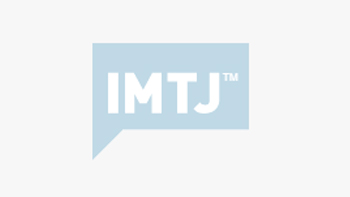South Florida is becoming an international destination for health care, and various new initiatives, often led by the medical tourism programme for the Greater Miami Chamber of Commerce, are increasing the inbound flow. But substantial unpaid fees mean that Miami hospitals will no longer accept patients from Turks and Caicos. Bahamas based The Bank of the Bahamas, with a branch in Florida, has a new Visa card that allows Bahamians discounts of between 30 % and 60% at seven South Florida hospitals. South Florida facilities accepting the card are Mercy Hospital, Baptist Hospital, Cleveland Clin
South Florida is becoming an international destination for health care, and various new initiatives, often led by the medical tourism programme for the Greater Miami Chamber of Commerce, are increasing the inbound flow. But substantial unpaid fees mean that Miami hospitals will no longer accept patients from Turks and Caicos.
Bahamas based The Bank of the Bahamas, with a branch in Florida, has a new Visa card that allows Bahamians discounts of between 30 % and 60% at seven South Florida hospitals. South Florida facilities accepting the card are Mercy Hospital, Baptist Hospital, Cleveland Clinic Florida, Jackson Memorial, Broward General, Miami Children’s and UM Health Systems. The bank argues that it is not promoting medical tourism, simply accepting the fact that as Bahamian residents do travel to Florida for healthcare, they are helping them afford treatment. Many hospitals offer international patients discounts off the gross charges, but foreigners generally still pay more than Americans with private insurance, which generally negotiates rates of discounts of 50 percent to 70 percent off gross rates. Four Miami-Dade hospitals have enlisted in a joint-marketing program through the Greater Miami Convention and Visitors Bureau to market the region.
One issue is whether hospitals are getting paid for international patients. Several South Florida hospitals are owed $20 million for treating patients, but there are differing accounts as to whether the money is owed by medical tourism agency Southern Health Network, or the government of the Turks and Caicos Islands. In April, the Turks and Caicos Islands Government decided not to renew its contract with Southern Health Network, the third party company that had been handling the country’s overseas medical referrals for the past two years.
The Turks and Caicos, eight inhabited islands, has been in financial and political turmoil for months. A premier known for extravagant spending resigned in March after a commission of enquiry proved corruption accusations, and a commissioner appointed by the United Kingdom has been trying to sort things out. The UK government has taken over responsibility for the country, as it is a British Overseas Territory.
According to documents filed with the Miami-Dade County Circuit Court, two Miami businesses are suing Southern Health Network for failing to pay for services provided to Turks and Caicos residents who travelled to the US for care. Several other hospitals claim they have not been reimbursed for money owing back to 2006. Baptist Health is owed money, as is Miami Children’s Hospital. The two providers suing Southern Health Network are plastic surgeon John Grossman, owed $50000, and SkyeMed Pharmacy and Infusion Services, owed $76,000. Southern Health Network has filed a lawsuit against the Turks and Caicos government for fees of $16 million.
What complicates matters is that according to a transcript from a Turks and Caicos government corruption inquiry held earlier this year, in 2006 island officials contracted with Southern Health Network to secure and coordinate U.S.-based healthcare for residents who needed treatment beyond what they could obtain through the islands’ healthcare system. But several years into the contract, investigators said that the medical travel program grew from $4 million a year to tens of millions of dollars annually under Southern Health Network’s management. Investigators found that Southern Health Network is owned Delroy Howell, a business associate of former Turks and Caicos finance minister Floyd Hall. According to Hall’s inquiry testimony, the agreement called for Southern Health Network to negotiate the provider contracts and pay for the provided treatment upfront. They would then receive reimbursement, which would include a fee based upon a previously negotiated discount-rate formula, from the Turks and Caicos government. But government officials cancelled the programme in April largely because of costs and questions over the contract-award process.
In 2006 Hall brought a proposal to the Cabinet that Southern Health Network, a Miami company set up for the purpose, be awarded the health care management contract at 50 percent of the savings they achieved. Prior to April 2006, a Canadian company, Canadian Medical Network (CMN), had been providing overseas health care management to the Turks and Caicos Islands government and in CMN’s last year of operation they had dealt with health care provision totaling $4.2 million and received fees of some $443,519, calculated on the basis of 25 percent of the discounts on real or inflated prices for medical services that they were able to negotiate on behalf of the TCI government.








 ©2024 All rights reserved LaingBuisson
©2024 All rights reserved LaingBuisson 


